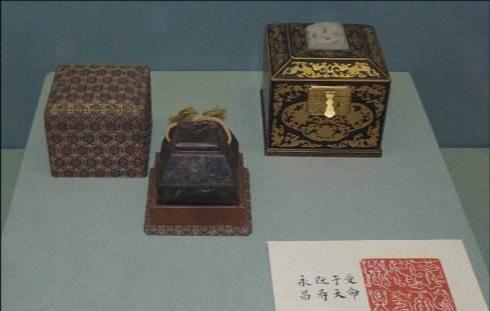What is history: it is the echo of the past to the future, the reflection of the future on the past. - Hugo
In 1912, the last emperor of the Qing Dynasty, Puyi, abdicated, according to the "Preferential Conditions for the Qing Dynasty", the private property owned by the Qing Dynasty royal family was not damaged, including various cultural relics, silver two, jewelry, palaces, manors, etc., and the property was difficult to count, the most valuable of which was cultural relics. During the reign of the Qing Dynasty, almost all the cultural relics in the country were wiped out, especially in Qianlong, and countless cultural relics were looted. These relics were all owned by the Inner House and became the private property of the royal family.

In 1917, because of his participation in Zhang Xun's restoration, Puyi was worried and began to smuggle cultural relics out of the palace. The smuggled cultural relics include more than 1,000 hand-scrolls of calligraphy and paintings from past dynasties, more than 200 kinds of albums and scrolls, and more than 200 precious books of the Song and Yuan dynasties.
After Puyi was expelled from the palace, the cultural relics in the palace were detained, but what could be taken away was 110,000 silver and a large number of treasures. Puyi, who was expelled from the palace, moved to Tianjin, lived on the cultural relics smuggled at the beginning, and sold many cultural relics in order to raise daily expenses.
In 1935, the remaining cultural relics and treasures were smuggled to the Puppet Manchu Imperial Palace in the northeast. When Japan surrendered in 1945, Puyi reluctantly took more than 10 boxes of cultural relics from these more than 70 boxes of cultural relics and treasures and embarked on the road of escape. Halfway used some cultural relics to exchange food for the local people, and when he flew to Shenyang, he only chose to bring two suitcases of cultural relics and treasures because of the load. The cultural relics abandoned in the puppet Manchu Palace were robbed by the guards, and many of the masterpieces were torn up and destroyed.
Also in 1945, Puyi was captured by the Russians, and some of the cultural relics he carried with him were confiscated. During his detention, Puyi secretly hid hundreds of small treasures such as pearls and diamonds, and discarded many of them in order to prevent them from being discovered by the Russians.
In 1950, Puyi was extradited back to China and handed over more than 400 pieces of the last cultural relics and treasures, and all the private property was consumed.
Puyi's private property, in fact, is also a public property, is the precious heritage of Chinese civilization, and it is a pity that countless cultural relics have been lost and destroyed.